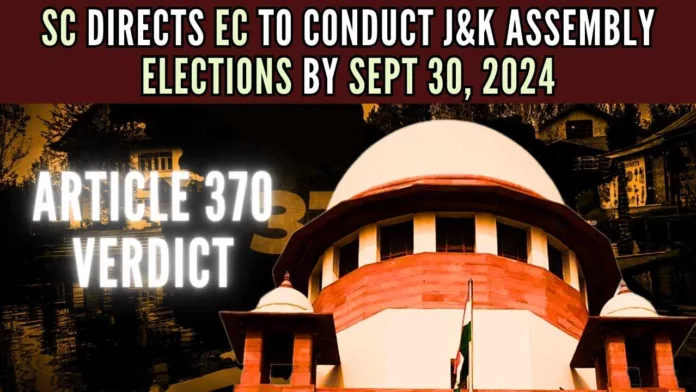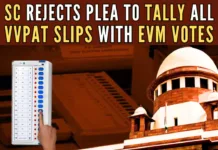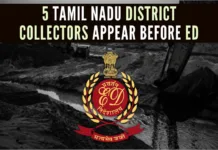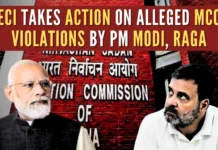
SC verdict on abrogation of Article 370: Court directs Centre to restore J&K statehood, conduct assembly elections by Sept 2024
The Supreme Court of India on Monday unanimously upheld the Central government’s 2019 decision to abrogate Article 370 of the Constitution, which conferred special status to the erstwhile State of Jammu and Kashmir. The apex court also directed the Election Commission of India to hold elections for the Jammu and Kashmir Legislative Assembly by September 30, 2024.
There were three judgments. The first was by Chief Justice D Y Chandrachud, Justices B R Gavai and Surya Kant. The second judgment of Justice Sanjay Kishan Kaul concurred with the first judgment and sought for formation of a Truth Commission on the four-decade-long violence in the valley, including the plight of Kashmiri Pandits. The third judgment of Justice Sanjiv Khanna concurred with the first and two judgments.
The verdict came in a batch of petitions challenging the Central government’s August 2019 move to quash Article 370, which paved the way for the Jammu and Kashmir Reorganisation Act bifurcating the State into the two Union Territories – Jammu and Kashmir, and Ladakh.
“We hold that Article 370 is a temporary provision. It was introduced to serve transitional purposes, to provide for an interim arrangement until the Constituent Assembly of the State was formed and could take a decision on the legislative competence of the Union on matters other than the ones stipulated in the instrument of accession, and to ratify the Constitution. Second, it was for a temporary purpose, an interim arrangement, in view of the special circumstances because of the war conditions in the State,” the Court said.
The Court said that simply because the Constituent Assembly ceased to exist, it did not mean Article 370 would continue permanently. “The President was empowered to issue the order to abrogate Article 370,” the Court concluded.
Terming the judgment as historic, Prime Minister Narendra Modi said that “the verdict today is not just a legal judgment; it is a beacon of hope, a promise of a brighter future and a testament to our collective resolve to build a stronger, more united India.” He posted in X:
Today’s Supreme Court verdict on the abrogation of Article 370 is historic and constitutionally upholds the decision taken by the Parliament of India on 5th August 2019; it is a resounding declaration of hope, progress and unity for our sisters and brothers in Jammu, Kashmir and…
— Narendra Modi (@narendramodi) December 11, 2023
In the lead judgment (written by the Chief Justice of India), the Court also held that Jammu and Kashmir did not have any internal sovereignty once it had acceded to India in 1949. “We hold Jammu and Kashmir does not have any internal sovereignty after accession to Union of India. By issuance of proclamation, para 8 of Instrument of Accession ceases to exist. Neither Constitutional text states that Jammu and Kashmir had any internal sovereignty. The proclamation by Yuvraj Karan Singh in 1949 and the Constitution thereafter cemented it. That the State of Jammu and Kashmir became an integral part of India is evident from Article 1 of the Constitution of India,” the Court held.
The apex court noted the Solicitor General’s submission that statehood will be restored to Jammu and Kashmir. “Solicitor General submits that Statehood will be restored to Jammu and Kashmir. In view of this submission, we do not find it necessary to determine whether the Jammu and Kashmir Reorganisation Act 2019 was invalid,” said the judgment. The Bench directed the Election Commission of India to hold elections for the Jammu and Kashmir Legislative Assembly by September 30, 2024.
“We direct that steps shall be taken by the Election Commission of India to conduct elections to the Legislative Assemblies of Jammu and Kashmir constituted under Section 14 of the Reorganisation Act by 30 September 2024. Restoration of Statehood shall take place at the earliest, and as soon as possible,” the Court ordered. The Court also upheld the decision to create the Union Territory of Ladakh.
In his concurring judgment, Justice Sanjay Kishan Kaul proposed a Truth and Reconciliation Commission to ensure justice for the Kashmir pandits who faced all sorts of violence and were forced to migrate. “It is a bit sentimental as well. Insurgencies led to the migration of one part of the population and the situation was such that the army had to be called and the nation faced dangers. Men, women, and children of the State has paid a heavy price. During my travels home over the years, I have (seen) the consequences of the inter-generational trauma on the already fractured society. I cannot help but feel anguished by what the people of the region have experienced. In order to move forward, the wound needs healing.
“There was a mass exodus of the Kashmiri Pandit community, threatened for their life and property, changing the very cultural ethos of Kashmir. There has been little turn-back despite three decades on this issue. It was a proxy war on the territory of India which active support from across the border,” said Justice Sanjau Kishan Kaul suggesting a Truth and Reconciliation Commission to ensure justice for the Kashmir pandits faced all sorts of violence from Islamic jihads and forced to migrate.
For all the latest updates, download PGurus App.
- Supreme Court rejects plea to tally all VVPAT slips with EVM votes; says ‘no going back to paper ballot’ - April 26, 2024
- US report citing human rights violations is deeply biased: India - April 25, 2024
- Kotak Mahindra Bank shares tank 13%. Market Cap erodes by Rs.37,721 cr post-RBI action - April 25, 2024











Good judgement. Happy that SC did not refer to Mughal Empire or Aurangzeb rulings on Kashmir and say it belongs to Sri Lanka or China